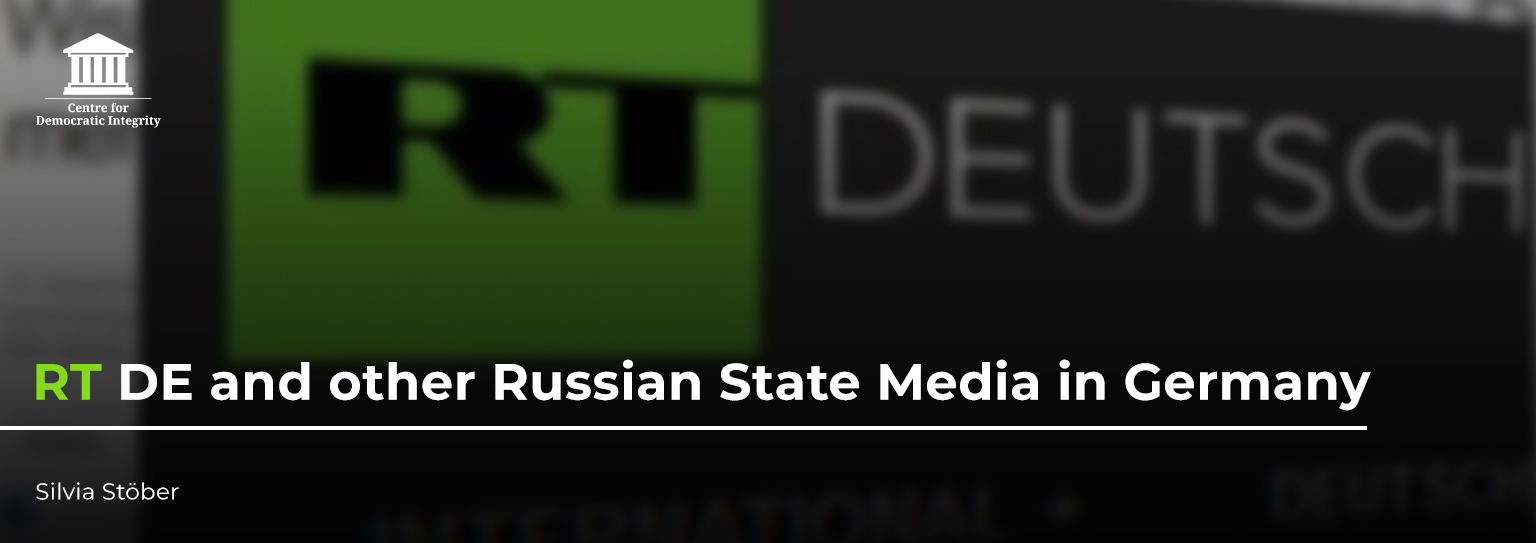
RT DE and Other Russian State Media in Germany
Silvia Stöber
[This article is part of our project “RT in Europe and beyond”]
A classic TV channel for Germany?
Founded as early as 2005 as a state-funded foreign media source, Russia Today still had a rather late start in Germany. It was not until 2014 that Russia Today launched a German-language website; this consisted of videos such as “Der fehlende part” (“The missing part”), online articles, and accounts on social media platforms. It called itself RT Deutsch, and renamed itself RT DE in 2020. Both designations are in use.

Contrary to how it started in the UK, RT did not initially obtain a licence as a classic TV station in Germany. It could therefore not distribute TV programmes via the usual channels, such as cable and antenna. So although RT had had the objective of establishing a TV station in Germany since 2014, this did not become a reality right away. In April 2021, however, RT DE Programme Director Alexander Korostelev told the Franco-German broadcaster Arte in an interview that “[w]e have always been working towards this point”.1
There are a few factors in play that caused this delay. In order to obtain a television licence in Germany, the Medienstaatsvertrag (State Media Treaty), imposes certain conditions. These include – perhaps as a lesson from the times of National Socialism – the concept of “Staatsferne”, which translates into maintaining a relative distance from the State. In this context, it means limited State influence on public broadcasting. This concept applies equally to media broadcasting in Germany by foreign states.2 According to the RT DE website, its parent organisation, TV Novosti, is “financed from the public budget of the Russian Federation”;3 RT DE therefore does not meet the required broadcasting conditions in Germany. In the draft budget law submitted to the Russian State Duma for 2022, 2.7 billion roubles (€33.5 million) were earmarked for the development and distribution of this German-language TV channel. And a total of 28.7 billion roubles (€347 million) was budgeted for TV Novosti.4
Furthermore, the German government assessed RT DE and other similar Russian media outlets or subsidiaries as “key players in a complex network that disseminates their narratives on behalf of Russian state agencies with the aim, among other things, of influencing the political opinion-forming process in Germany”.5 This was in answer to a question posed in the Bundestag by members of the liberal Free Democratic Party (Freie Demokratische Partei, or FDP) in September 2020. It is also stated that the Bundesverfassungsschutz (Federal Office for the Protection of the Constitution), which is the German federal domestic intelligence service, evaluates these media services on an ad hoc basis to gauge Russian influence.
In its 2020 Annual Report, the Bundesverfassungsschutz opined that Russian state media were tools for efforts to steer public opinion in Germany in its favour by spreading propaganda, disinformation, and other attempts to exert influence.6 In the 2019 Annual Report, it specifically mentioned “the internet broadcaster RT Deutsch as well as the news agency Sputnik”.7 These media sources, based in Germany but operated by the Russian state, were therefore important for the German state to keep an eye on, according to this report.

Statements by leading RT employees indicate that they do not regard RT as a classic information medium. For example, in an interview with the Franco-German television channel Arte in April 2021, RT DE’s Managing Director, Dinara Toktosunova, said: “I actually think that the whole world is at war for information. If you ask where the Third World War is, it’s in the information sphere. In this context, of course, we are all in this war”.8 This comment reflects statements made by RT Editor-in-Chief Margarita Simonyan. She already spoke of an information war in a 2012 interview with the Russian newspaper Kommersant. In this, and in another interview in 2013 with the Russian news website Lenta.ru, she said that just as the Ministry of Defence kept weapons ready for war in peacetime, information “weapons” had to be ready for times of crisis too.9
By looking at the totality of these factors – its funding by the Russian State, assessments by the German authorities, and statements by senior RT employees themselves – one would argue that RT DE does not meet the requirements of the State Media Treaty for a nationwide television licence in Germany. Nonetheless, RT pursued the goal of establishing a TV station in the country. At the end of January 2021, RT DE announced that, pending outcomes from the COVID-19 pandemic, it would go on air in Berlin in December the same year.10 The announcement was linked to a webpage advertising more than 200 job openings in all areas, ranging from management, technology, and graphics to editorial and presenter positions in Berlin. Such jobs were still being advertised as of 31 December 2021.11
This led people to conclude that apparently RT DE were preparing to apply for a television licence in Germany. There were at least plans in 2019 to establish an “advisory board for RT Deutsch”, as the-then Editor-in-Chief Ivan Rodionov said.12 This advisory board was to consist of “renowned German personalities from the most important social groups”, he explained. They were to accompany and oversee RT Deutsch.13 However, according to the Medienanstalt Berlin-Brandenburg (MABB) – an independent joint media agency of the federal states of Berlin and Brandenburg – RT did not apply for a television licence in Germany until the end of 2021.
Instead, those responsible for RT DE tried to use European regulations to gain the right to broadcast a full programme for television nationwide. The autonomous non-profit organisation (or ANO) TV Novosti, which is listed as responsible for RT DE in its imprint,14 applied for a television licence in Luxembourg in June 2021. But in mid-August 2021, the government of this EU state rejected the application. “Luxembourg is not competent for the television programme ‘RT in German’”, the Office of Prime Minister Xavier Bettel said.15 Bettel’s Ministry of State is, among other things, responsible for media and communications. According to the article, his ministry confirmed that on 15 June 2021 it received a request from the RT parent company, TV Novosti, to broadcast, via satellite, a German-language television programme “RT in German”. One of the most important, and most widely-used satellite operators in Europe, is Astra, which is based in a small town in Luxembourg.

According to a report by the newspaper Süddeutsche Zeitung, however – even before TV Novosti submitted this application – officials, diplomats, and intelligence officers from Luxembourg and Germany met in late May 2021 to discuss how to handle such a possible application for a television licence.16 It was agreed by the majority that Germany was responsible for granting this licence, not Luxembourg. In August 2021 therefore, a spokesman for the Ministry of State in Luxembourg confirmed that,17 in accordance with the procedure foreseen for the exchange of information between national authorities, the relevant bodies in Germany had been approached to ensure consistent application of the EU Audiovisual Media Services Directive.18
When it became clear that nationwide broadcasting in Germany could not be achieved in a legally compliant manner within the framework of EU regulations, those responsible at RT tried to get this done via Council of Europe regulations. According to its own information, TV Novosti acquired a licence in Serbia for cable and satellite transmission of the channel RT, in the German language, for European countries.19 The legal basis, as cited by RT, was the European Convention on Transfrontier Television (ECTT).20 This was announced on 16 December 2021, when RT finally launched its German television programme, comprising news, talk shows and German translations of its English-language programmes. According to the statement, the TV programme is produced in Moscow and broadcast from Serbia to Eutelsat’s 9B and 16A satellites; these in turn can be received on televisions in Central and Eastern Europe, but are not nearly as widely used in Germany as the TV and radio programmes broadcast via Astra.
Those responsible within the German authorities reacted immediately to the launch of this nationwide TV programme. A day later, the MAAB initiated proceedings against RT and gave the latter until the end of the year to respond. The point of contention given was that the broadcasting licence required for the TV programme had neither been applied for nor granted in Germany. In coordination with German and European regulatory authorities, the European Affairs Commissioner of the German media authorities for the German federal states, Tobias Schmid, informed satellite operator Eutelsat, which stopped broadcasting RT DE on satellite 9B on 22 December 2021.21
RT protested, as expected, referring once more to the ECTT, and announced that it would exhaust all legal means in its defence. A major point of this legal contention was the location of the TV station. In the view of the German media institutions, the headquarters were still in Berlin and thus subject to German jurisdiction. Accordingly, the licence must be applied for and granted in Germany, according to Tobias Schmid.22

This was countered by RT programme director Alexander Korostelev in October 2021, as he stressed that editorial decisions would continue to be made in Berlin.23 Throughout 2021, more than 200 job positions were advertised, with the explicit reference to Berlin as the location of work.24 On the other hand, Managing Director Dinara Toktosunova said that editorial decisions were being made in Moscow. She also stated that most of the people who worked for the station were located in the Russian capital. Consequently, she concluded, there could be no jurisdiction in Germany.25 Correspondingly, an announcement by RT in September 2021 (“RT goes on the air: tune in!’) stated that the company would broadcast its German programming directly from Moscow with the assistance of approximately 400 employees. Seventy additional employees would deliver programming portions from Berlin.26 Here, RT’s ambition to offer the full programme of a TV station from Berlin was blatantly opposed to its claim that the channel was being broadcast in accordance with German legal requirements.
Following the decision of MABB (which held regional media responsibilities), the media commission responsible at a national level, ZAK, also banned RT DE’s television programmes in Germany. Furthermore, ZAK held itself responsible because RT DE Productions GmbH was based in Germany. The broadcaster filed a complaint against the decision, and also filed an urgent application with the Administrative Court in Berlin to be able to legally continue airing its TV programmes. As the live stream of the television programme continued, MABB first imposed a penalty payment of €25,000 on 5 March 2022, and threatened a new penalty payment of €40,000 if RT DE did not respond.27
Banned from YouTube
A few hours after launching its new TV programme on 16 December 2021, the “RT on air” livestream channel was blocked by YouTube. The platform justified the move by pointing to the fact that the RT DE channel had already been stopped in September for bypassing its terms of service. This related to the time when YouTube had accused RT of spreading disinformation about the COVID-19 pandemic, an illegal activity as per YouTube’s community guidelines. As a result, YouTube withdrew RT right to upload new posts to one of its channels. But when RT tried to circumvent this by using another YouTube channel for its uploads, the video platform blocked both channels.28 Using the same reasoning, YouTube stopped the new channel from airing in December.29
This was a bitter blow for RT DE, whose main channel had 600,000 subscribers in September. From the very beginning, its programmes, such as “Der fehlende part” or “451°” were uploaded to YouTube, incorporated into RT’s own website, and linked within posts on social media platforms such as Facebook. Therefore, all YouTube videos on the RT websites and social media posts were now also lost. This was changed by RT with their new TV programme, as that was now streamed continuously on its own website. Furthermore, in its legal case YouTube, RT announced its intention to use all legal options available to regain its presence on the video platform.
In addition to the livestream on its own website, RT DE used apps and TV services for Apple and Android, thereby providing the programmes in other languages. There were also Smart- and Pay- TV offerings, and an RT DE TV channel on Odysee – a video platform that sees itself as an alternative to YouTube, without moderators and safety filters for younger viewers.30 The content of Odysee remains permanently on a blockchain called the LBRY Network. The CEO of Odysee, Jeremy Kauffman, said he created the website so that “anyone could speak, and anyone could have a voice”.31

Simultaneously, both former and current RT employees continued to remain active on YouTube. Ivan Rodionov, RT DE’s Editor in Chief from 2014 to 2020, runs a YouTube channel (“InfraRot”) with other colleagues, and promotes it on his Twitter account. According to a report in the German tabloid Bild in November 2021, YouTube was also reviewing the content of this channel on its platform.32 On Facebook, “InfraRot” posted live streams of demonstrations against COVID-19 safety measures, without giving concrete information about who was behind this media outlet. Interestingly, “InfraRot” also hosted a channel on Odysee, but this had remarkably fewer subscribers – only 143 followers as of December 2021.33
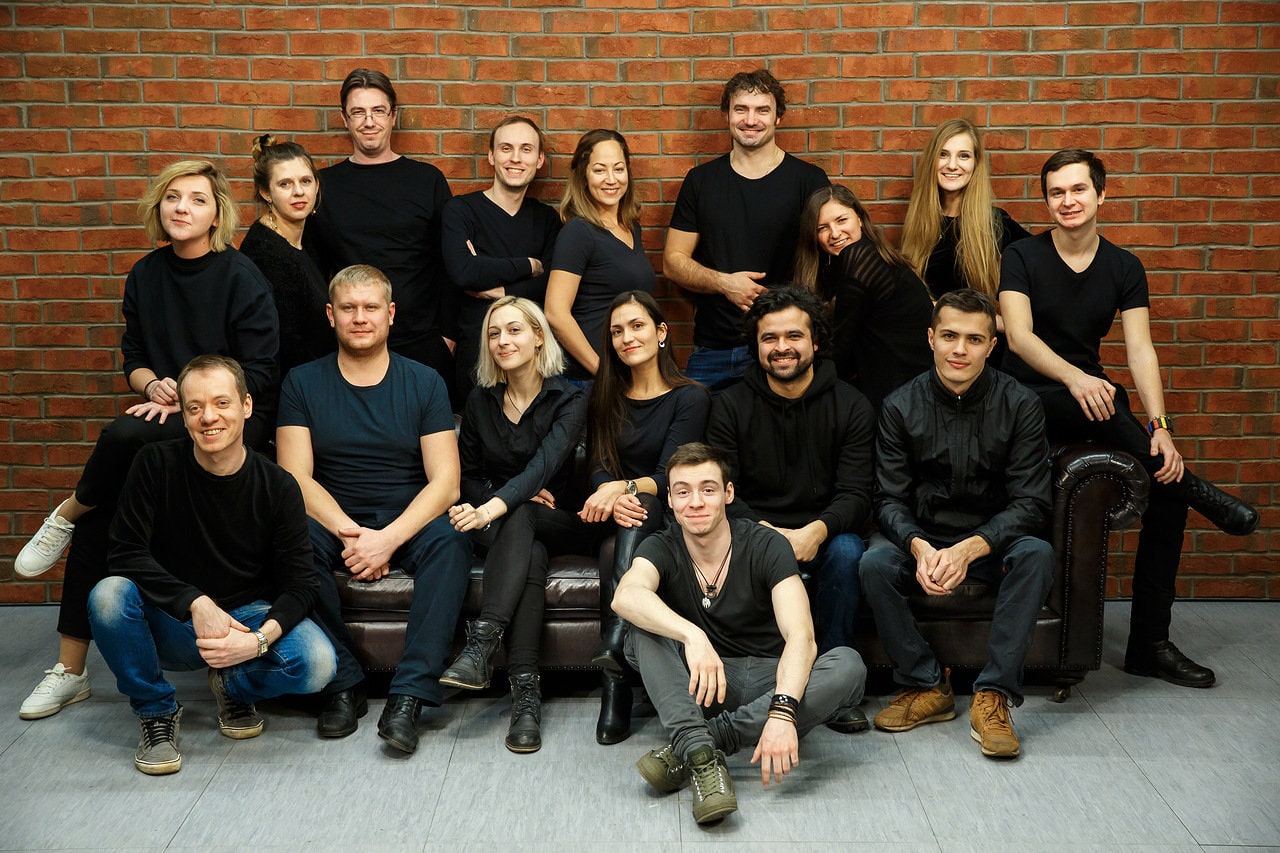
In this cat-and-mouse game between media regulators and platform operators on the one hand, and RT and affiliated channels (such as “InfraRot”) on the other, it becomes apparent that the latter keeps losing followers and having to win them over again, over a longer period of time. However, new opportunities are constantly being found to set up accounts and channels without provision of the operator’s details, and to switch to internet platforms that evade media regulation. This was already evident in accounts such as “In the Now”, “Redfish”, “Waste-Ed”, “Soapbox”, and “Back Then”; founded by Maffick Media GmbH and Redfish GmbH in 2018, these are subsidiaries of the Berlin-based company Ruptly. These accounts, with very different content and ideology, provided information about their operators and the Russian state as the financier only after requests, some of which were later withdrawn when there was less attention to these channels. Some Facebook users who were critical of Russia shared content from “In the Now” without knowing who operated that account. This is a prime example of what might be meant by preparing weapons for information warfare in peacetime – accounts tailored to different users are to be disseminated to, and trusted by, an audience so that they can be bombarded with targeted messages when required.
Global competition with other news agencies
To be able to flood websites, accounts and channels with its own content, TV Novosti ensures that it has its own recordings of important world events. It also makes these available to other media sources. To this end, TV Novosti founded a video news agency in Berlin, the already-mentioned company Ruptly. It began operations back in 2013, just a year before its sister organisation, RT DE, was launched. To date, Dinara Toktosunova is listed as Chief Executive Director for Ruptly,34 and she is also the managing director of RT DE. Ruptly presents itself as highly professional and competitive. It claims its mission is to offer “a bolder, deeper point-of-view than the established figures of the news marketplace”, by using “the best resources and technologies to bring you the latest breaking stories and most professional coverage”. To this end, Ruptly continues “to expand a rapidly growing global network of permanent bureaus and stringers”, and says it has content ranging from stories “from the world’s most dangerous conflict zones” to the “best light news stories”.35
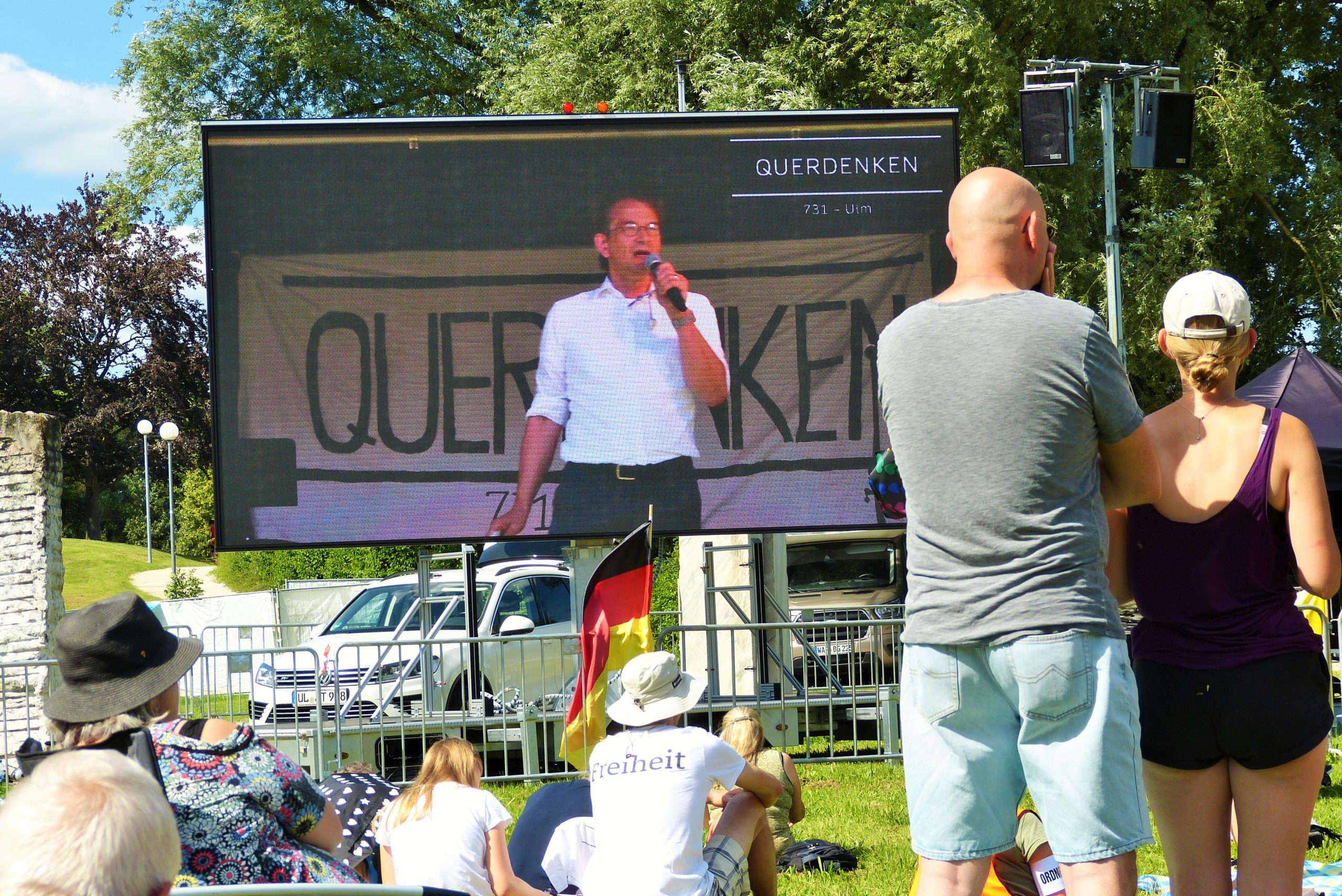
In 2019, Ruptly scored a coup. Julian Assange left the protection of the Ecuadorian Embassy in London after seven years, and he was immediately arrested by police. The Russian news agency was the first on the scene, and provided exclusive footage that was broadcast worldwide. From Germany, Ruptly provided extensive live streams of protest actions in the country, such as the Pegida demonstrations (directed against official migration policy) and the Querdenken movement (protesting COVID-19 safety measures and COVID-19 vaccinations). Video clips, often edited to highlight footage of police violence against protesters, are frequently shared on social media to evidence a lack of democracy in Germany and other EU countries. Ruptly thus presents itself as giving a voice to those who oppose the government.
Sputnik News/SNA News
Compared to RT, the activities of the state-owned international media group Rossiya Segodnya (or “Federal State Unitary Enterprise”), are less known to the German public. Its General Director, Dmitry Kiselyov, is known as the presenter of the Sunday TV programme “News of the Week” on Rossiya 1, the Russian domestic TV network. In Germany, the media company has been offering news and a radio programme under the name “Sputnik News” since 2014. Its headquarters are given as an address in a residential area outside the centre of Berlin. Little more than a few quotes about its Director, Sergey Feoktistov, can be found in Russian media.
In December 2020, the Russian Embassy in Germany announced that “Sputnik News” would be rebranded – it was renamed “SNA News” and had a new website and new accounts on Facebook and other social media.36 Since the summer of 2020, SNA News hosted a podcast “Basta Berlin” on YouTube, run by two Berlin journalists,37 with the account reaching a maximum of 90,000 viewers.38 SNA News says it wants to “use state-of-the-art information technology to inform German-language readers about the most important events in Germany, Austria, Switzerland and the world”. The editorial offices are located in Berlin and Moscow, according to the imprint. It describes its work through the keywords of “accuracy”, “efficiency”, “responsibility”, “diversity of opinion”, and “innovation”.39
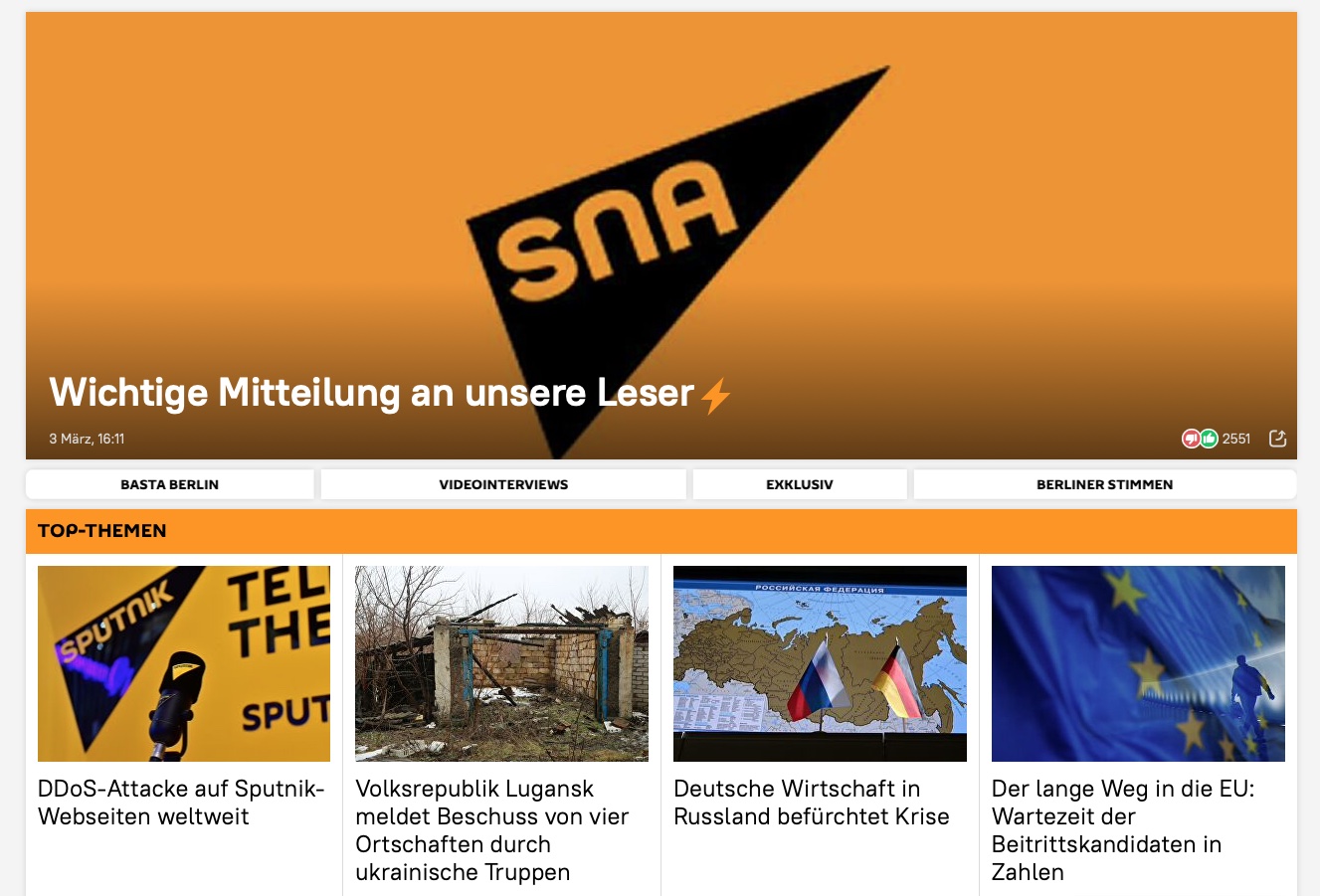
This reflects a strategy similar to that shown to visitors to the Rossiya Segodnya headquarters in Moscow; in turn, the latter is similar to the self-description of Ruptly, the TV Novosti news agency. The aim is to be technically in a position to produce news – through videos, pictures, and text – in competition with other news agencies such as AP, Reuters, and dpa.com, thereby influencing and determining public opinion about current affairs. While speed of news publication was highlighted to visitors during a tour of its editorial offices in Moscow, SNA News cites accuracy as its first priority on its website. Rossiya Segodnya also stated that in order to be a leader in the future, it was now experimenting with advanced digital techniques.
Mega Radio SNA
In addition, SNA News produces a radio programme in German that can be heard livestream on the Internet. SNA Radio news programmes that are available (for example, on the audio-streaming platform Soundcloud) are advertised with the phrase “Sachlich – Nah – Ausgewogen” (“Factual – Close – Balanced”) as an explanation for the abbreviation SNA. This is followed by the words “Eine Produktion von Rossiya Segodnya”.40
In cooperation with the private German station Megaradio (located in Augsburg in Bavaria), SNA contributions and programmes are also broadcast on that platform. According to the imprint on its website, megaradio-sna.de is a project of Mega Radio GmbH in Augsburg. The imprint does not contain any indication that some programme parts are produced by SNA.41 The Megaradio station runs on the DAB+ Network (a digital transmission standard for terrestrial reception of digital radio), with a licence from the programme regulatory authority in Kassel – the Hessian State Authority for Private Broadcasting and New Media. Mega Radio GmbH had applied for a nationwide licence there.
In February 2019, the media authority responsible for Berlin and the state of Brandenburg decided that the broadcasting of the Megaradio station on the Berlin DAB+ network must be discontinued. The authority referred to several court decisions,42 one of which noted that the radio station was highly financially dependent on the Russian state media company Rossiya Segodnya. The fundamental question – can broadcasters that receive extensive programming supplies from companies financed by other states obtain a broadcasting licence in Germany? – was to be settled before the Kassel Administrative Court in Hesse. As in the case of RT DE’s TV station, the issue is one of “Staatsferne”. However, the case was withdrawn and the proceedings were discontinued in 2019.
Aspects of media law
If RT DE broadcasts as a television station in Germany, it must (like Megaradio SNA) broadcast as a classic radio station. This is so that it will comply with the regulations of the State Media Treaty, as well as with general journalistic principles. This includes the journalistic obligation to exercise due diligence. Towards the end of 2021, the regulatory authority Medienanstalt Hamburg/Schleswig-Holstein identified a violation of this State Media Treaty at Megaradio. In a press release, the State authority said that during continuous programme monitoring, a news report supplied by SNA Radio about “side effects and deaths in connection with the Covid-19 vaccinations” had attracted attention.43 This news story seemed to lack critical information that would assist full understanding of the topic. It therefore violated the journalistic principles laid down in the State Media Treaty. This announcement is critical and worth highlighting: the State Media Treaty has been reformed in such a way that, since November 2020, “telemedia with journalistic-editorial offerings” must also comply with journalistic principles. In concrete terms, this means that the supervisory authorities can now also take action against disinformation on the Internet.
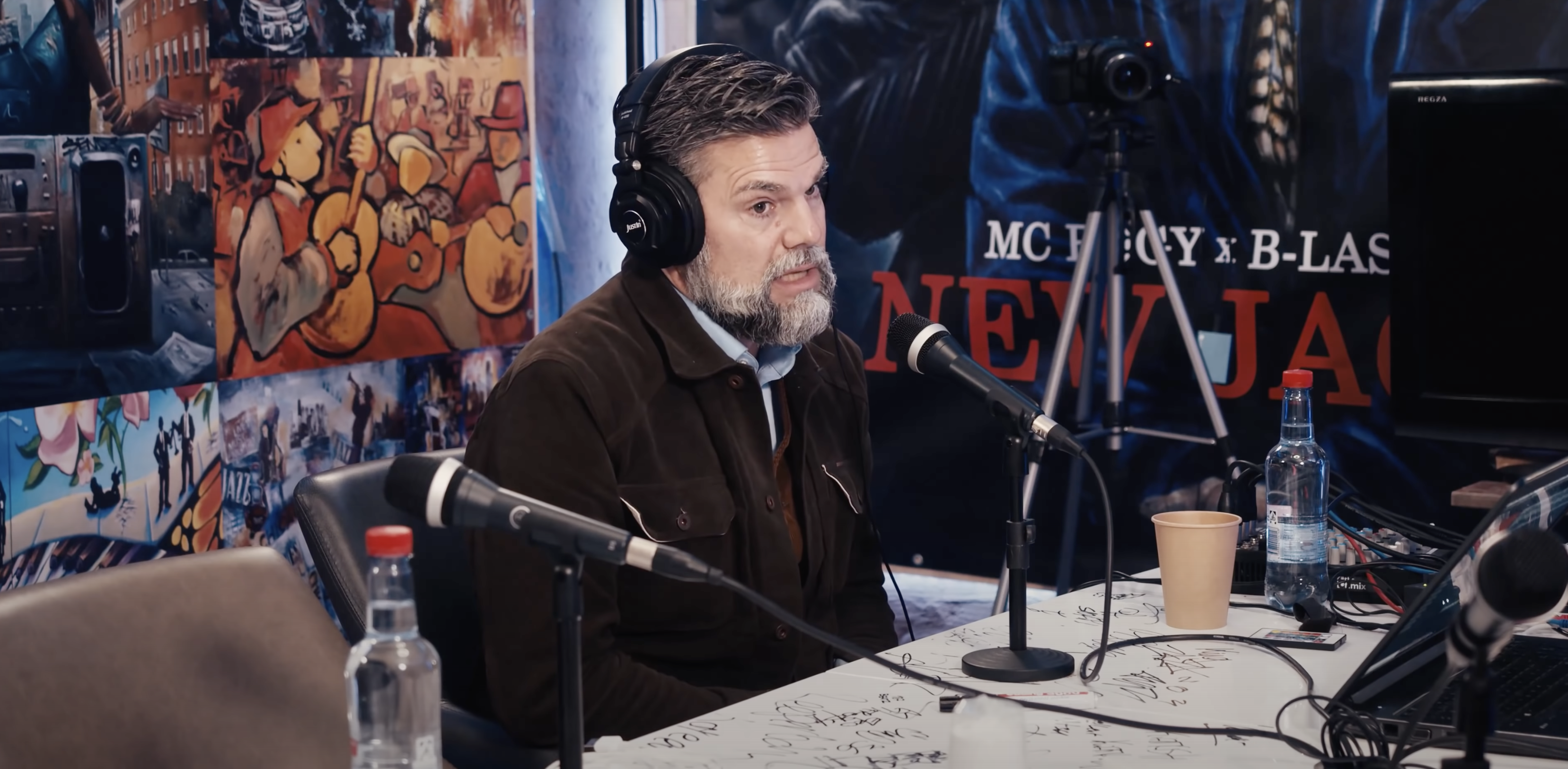
The regulatory authority also responsible for RT DE, MABB, has already sent letters to providers of YouTube channels and websites, pointing out violations of their journalistic obligation to exercise due diligence. Those notified include journalist Ken Jebsen, who has been very successful in spreading conspiracy myths and disinformation about COVID-19 on the Internet. He has since abandoned his very well-known label, KenFM, and has launched new social media channels and platforms under the name “Apolut”. Like many others on the scene (including RT DE and “InfraRot”), he uses the Instant Messenger service Telegram and similar platforms; these see themselves as an alternative to Twitter and YouTube by moderating content very little or not at all.
The challenge for regulators is that Telegram and other such providers, which portray themselves as alternatives to “mainstream media”, are based outside Germany and the EU. Added to this is the sheer volume of disinformation on the Internet, which is almost impossible to keep track of. The advantage with RT and SNA products so far has been that their origins have been traceable, or could be uncovered, so that they can be held accountable – at least in theory. But the described cases of RT DE, “InfraRot” and Ken Jebsen show that a cat-and-mouse game is developing here as well. When they change their names and channels, they naturally lose followers. But now, a widely-developed network between alternative information sources assists them in distributing their news and video products. Some authors publish on RT DE and also on other platforms.
RT DE, SNA, and the alternative media are the same in that they consistently make accusations of politically motivated decisions and censorship. As an answer, the regulatory authorities in Germany’s federally organised media system emphasise their independence from the State. For example, an employee of MAAB emphasised that it does not matter whether information is correct or incorrect – they are not the “truth police”, he said. Rather, “it is a matter of ensuring that content is not taken out of context, that sources are named, and that quotations are not abbreviated or in other ways misrepresented; in short, that the journalistic obligation to exercise due diligence is observed”.44
“Media war”
Suspensions and bans against Russian state media regularly result in the Russian government responding with the threat of retaliatory countermeasures against German media in Russia. This primarily concerns the German foreign broadcaster Deutsche Welle with its service in the Russian language. One day after the German media commission ZAK banned RT DE’s television programme for lack of a German licence (2 February 2022), the Russian leadership reacted with a complete ban on Deutsche Welle in Russia. Furthermore, the journalists of the foreign broadcaster were no longer allowed to continue working in Russia, nor was the news content to be receivable and retrievable on any distribution channel in Germany. However, Deutsche Welle had all the necessary accreditations and licences.45
Even when private providers made such decisions, rather than official supervisory authorities, there were threats of retaliation from the Russian government. RT Editor-in-Chief Margarita Simonyan repeatedly spoke of a “media war” or “information war” in this context. On the RT DE website, in fact, there is a section called “Campaign against RT DE”. As in the case of the blocking of RT’s YouTube channels, it is then assumed that the German government has exerted its influence on YouTube. This was equally the case when the private German, Commerzbank, terminated the accounts of Ruptly and RT DE Productions GmbH in Germany (on 31 May 2021). Christofer Burger, the German Foreign Office’s spokesman in Berlin, clarified that “the German government has in no way acted on Commerzbank in the sense of terminating the business relationship”.46
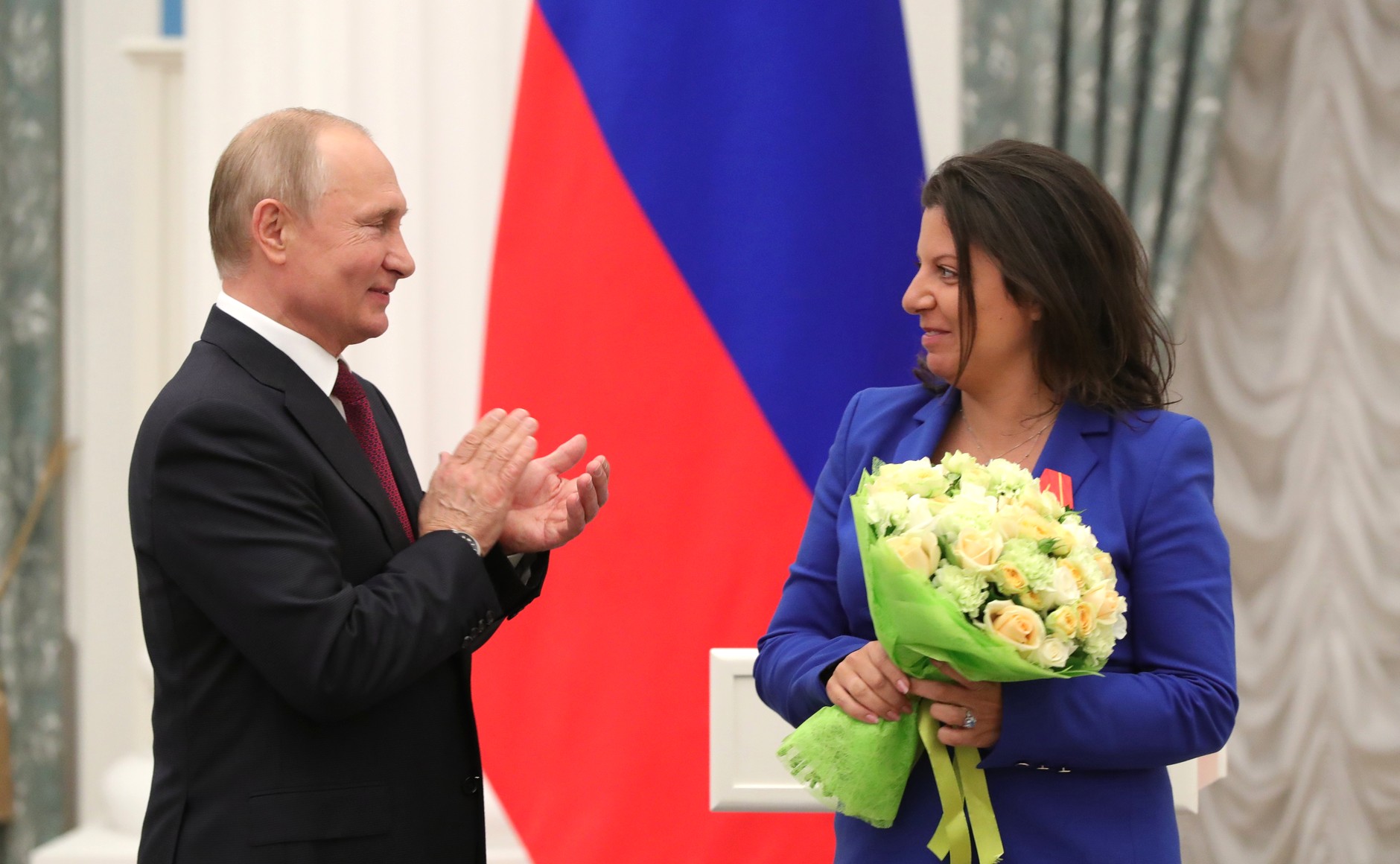
What is noteworthy in the Russian side’s argument is that, on the one hand, they present themselves as being on the same level as the “mainstream media” in Germany. On the other hand, they position themselves in clear opposition to them, and present themselves as “alternative media”. As for the first point, it is always emphasised that the German foreign broadcaster Deutsche Welle is also financed by the state. However, there is no evidence presented in such statements that the German government has any influence on the content of Deutsche Welle. As far as its own reporting is concerned, it is emphasised that journalistic standards are adhered to. For example, in response to a question from the public broadcaster SWR about whether it engages in “campaign journalism”, RT DE declared that it did not, nor is it aware of a single public rebuke from the Press Council, the body responsible for the voluntary self-regulation of print media and their online presence in Germany. However, what RT DE did not mention was that the Press Council cannot reprimand the state medium at all, because RT has never applied for control by the Press Council.47
RT also apparently targeted employees of traditional media when recruiting new staff for their TV station. In any case, offers were made to individual journalists. Many journalists repeatedly received news about jobs advertised at RT via job platforms. When beginning their new jobs, journalists would receive packages with greeting cards and USB sticks. On social media, however, these job advertisements were often met with ironic comments. So far, no prominent journalists’ departures to RT DE have been announced either. In recent years, many newcomers and career changers to journalism gained awareness about RT DE. On the other hand, those writing on behalf of RT DE often attack the “mainstream media”, as well as individual journalists, on social media. One RT employee appears as a troublemaker at events held by the Federal Press Conference, which is an association of journalists in Berlin that organises press conferences with government representatives on a regular basis; journalists from the foreign press are also admitted to these events, and this then gives RT DE the opportunity to raise some controversy.48
RT has also taken legal action against the established media’s coverage of its own company. For example, RT attempted to obtain a restraining order against the tabloid Bild, because an article about the application for the television licence in Luxembourg incorrectly stated “RT DE Productions GmbH” instead of TV Novosti. According to Bild, the error was corrected on 21 September 2021, after a lawyer for RT DE informed the Bild editorial team about this mistake. However, a Frankfurt regional court rejected RT’s legal application, and ordered it to pay the costs of the proceedings.49 In this case, the question is whether this was a strategic lawsuit against public participation or “SLAPP” – legally abusive lawsuits against journalists, authors and NGOs, in order to intimidate them and prevent them from further reporting or public discussion. In France, for example, RT unsuccessfully sued political expert Nicolas Tenzer for his tweets about RT.50 In the meantime, the EU Commission has presented a proposal for a directive against SLAPPs to be adopted in the second quarter of 2022.51
The question remains as to what goals are being pursued by RT DE and similar news services. The budget, the equipment in a studio in Berlin Adlershof, and the breadth and number of jobs advertised, suggested that RT DE wanted to take on German public and private TV stations in terms of technical quality and seriousness, at least in the news reporting section. But so far, these media channels have not attracted attention with reporting that can be described as “exclusive” or “investigative” enough in order to compete with the established media in Germany. There is also a lack of media personalities with strong reputations that could make their programmes attractive to a broad audience. Instead, their coverage resonates with an audience that sees itself on the fringes of the political spectrum, or within an alternative scene, in Germany.
These news outlets seem to want to be present on as many playout channels as possible, both within classic media outlets and online, and want to tempt audiences there – partly covertly – with different content and ideological orientations. It is questionable how seriously these attempts are being made to establish themselves on classic TV and radio channels. There is, after all, the described barrier of “Staatsferne” as a condition for obtaining broadcasting licences. And it can be assumed that programmes in traditional broadcasting will be monitored more closely for compliance with the regulations of the State Media Treaty – and violations will be punished accordingly. However, this always gives rise to the possibility of RT DE and others accusing German authorities of political influence and censorship. This may happen even if the German authorities are not evaluating the reporting in terms of content per se, but in terms of compliance with the journalistic obligation to exercise due diligence.
Endnotes
1. Mathilde Schnee, “Russia Today, Moskaus Stimme in Deutschland”, Arte, 27 April (2021), https://www.arte.tv/de/videos/103578-000-A/russia-today-moskaus-stimme-in-deutschland/.
2. “Medienstaatsvertrag (MStV) vom 14./28. April 2020”, Die Medienanstalten, https://www.die-medienanstalten.de/fileadmin/user_upload/Rechtsgrundlagen/Gesetze_Staatsvertraege/Medienstaatsvertrag_MStV.pdf.
3. “Über RT DE”, RT DE, https://de.rt.com/uber-uns/.
4. Maksim Ivanov, Mariya Istomina, Galina Kazakulova, Elena Mukhametshina, “Gosudarstvennye SMI smogut ne otchityvat’sya ob inostrannov finansirovanii”, Vedomosti, 20 October (2021), https://www.vedomosti.ru/politics/articles/2021/10/20/892230-gosudarstvennie-smi.
5. “Antwort der Bundesregierung auf die Kleine Anfrage der Abgeordneten Thomas Hacker, Katja Suding, Dr. Jens Brandenburg (Rhein-Neckar), weiterer Abgeordneter und der Fraktion der FDP”, Deutscher Bundestag, 3 September (2020), https://dserver.bundestag.de/btd/19/220/1922076.pdf.
6. “Verfassungsschutzbericht 2020”, Bundesministerium des Innern, für Bau und Heimat, 15 June (2021), https://www.bmi.bund.de/SharedDocs/downloads/DE/publikationen/themen/sicherheit/vsb-2020-gesamt.pdf.
7. “Verfassungsschutzbericht 2019”, Bundesministerium des Innern, für Bau und Heimat, https://www.bmi.bund.de/SharedDocs/downloads/DE/publikationen/themen/sicherheit/vsb-2019-gesamt.pdf.
8. Schnee, “Russia Today”.
9. Silvia Stöber, “Waffen im Informationskrieg”, tagesschau.de, 26 April (2018), https://www.tagesschau.de/faktenfinder/ausland/russian-rt-101.html.
10. “Der Countdown läuft: RT DE wird noch dieses Jahr live auf Sendung gehen”, RT DE, 27 January (2021), https://web.archive.org/web/20210127072229/https://de.rt.com/gesellschaft/112319-der-countdown-laeuft-rt-de-wird-noch-dieses-jahr-live-auf-sendung-gehen/.
11. “Deine Karriere bei der RT DE Productions GmbH”, RT DE, https://de.rt.com/jobs/#vacancies.
12. Joachim Huber, “Ex-MDR-Chefredakteur Kenntemich als Lobbyist. RT Deutsch auf allen Rundfunkwegen”, Tagesspiegel, 11 January (2019), https://www.tagesspiegel.de/gesellschaft/medien/ex-mdr-chefredakteur-kenntemich-als-lobbyist-rt-deutsch-auf-allen-rundfunkwegen/23851974.html.
13. Ibid.
14. “Impressum”, RT DE, https://de.rt.com/impressum/.
15. Yannik Lambert, “Luxembourg Says Will Not Grant Licence to Russia’s RT”, Luxembourg Times, 13 August (2021), https://www.luxtimes.lu/en/luxembourg/luxembourg-says-will-not-grant-licence-to-russia-s-rt-61164bcbde135b9236e4f9b8.
16. Georg Mascolo, “Fernseh-Lizenz für RT DE. Kalter Krieg am Himmel”, Süddeutsche Zeitung, 18 August (2021), https://www.sueddeutsche.de/medien/rt-de-medienrecht-propaganda-kreml-sendelizenz-1.5326259.
17. Kurt Sagatz, “Bericht: Ein Njet aus Luxemburg für RT DE. Keine Lizenz für deutschen Ableger des Kreml-Senders”, Tagesspiegel, 12 August (2021), https://www.tagesspiegel.de/gesellschaft/medien/bericht-ein-njet-aus-luxemburg-fuer-rt-de-keine-lizenz-fuer-deutschen-ableger-des-kreml-senders/27511828.html.
18. “Audiovisual Media Services Directive (AVMSD)”, EUR-Lex, https://eur-lex.europa.eu/legal-content/EN/TXT/?uri=LEGISSUM%3Aam0005.
19. “Gegen alle Widerstände – RT DE ist auf Sendung gegangen!”, RT DE, 16 December (2021), https://de.rt.com/inland/128499-gegen-alle-widerstande-rt-de/.
20. “European Convention on Transfrontier Television”, Council of Europe, 5 May (1989), https://web.archive.org/web/20211220100732/https://rm.coe.int/168007b0d8.
21. “Russischer Staatssender: Medienaufsicht schränkt Ausstrahlung von deutschsprachigem RT-Angebot ein”, Der Spiegel, 22 December (2021), https://www.spiegel.de/kultur/tv/rt-medienaufsicht-stoppt-ausstrahlung-von-rt-de-per-satellit-a-c163b059-957a-4f1a-8b46-d2ce111849df.
22. Inga Mathwig, Konstanze Nastarowitz, “RT DE startet Fernsehsender: Medienanstalt leitet Verfahren ein”, NDR, 17 December (2021), https://www.ndr.de/fernsehen/sendungen/zapp/RT-DE-startet-Fernsehsender-Medienanstalt-leitet-Verfahren-ein,rtde106.html.
23. Konstanze Nastarowitz, Inga Mathwig, “‘RT DE’: Russische Propaganda oder anderes Weltbild?”, NDR, 20 October (2021), https://www.ndr.de/fernsehen/sendungen/zapp/RT-DE-Russische-Propaganda-oder-anderes-Weltbild,zapp13394.html.
24. “Deine Karriere bei der RT DE Productions GmbH”.
25. Nastarowitz, Mathwig, “‘RT DE’”.
26. “RT geht auf Sendung: Schalten Sie ein!”, RT DE, 16 December (2021), https://de.rt.com/inland/124192-rt-de-geht-auf-sendung/.
27. “Aktuelle Informationen zu RT DE”, Medienanstalt Berlin Brandenburg, 05 March (2022), https://www.mabb.de/uber-die-mabb/aktuelles/neuigkeiten-details/aktueller-sachstand-rt-de.html
28. “Reaktion auf die YouTube-Sperre von RT DE: Streitfall Corona”, Süddeutsche Zeitung, 28 September (2021), https://www.sueddeutsche.de/medien/youtube-rt-gegenmassnahmen-1.5424905.
29. Mathwig, Nastarowitz, “RT DE startet Fernsehsender”.
30. “Wie Sie uns empfangen können”, RT DE, https://cdn.rt.com/de/RT_DE_DEU.pdf; RT DE Live TV on Odysee: https://odysee.com/@RTDE:e/LiveTV:0.
31. Anthony Ha, “Odysee Aims to Build a More Freewheeling, Independent Video Platform”, Tech Crunch, 7 December (2021), https://techcrunch.com/2020/12/07/odysee-launch/.
32. Julian Röpcke, “Um die YouTube-Sperre zu umgehen? Ex-Chef von ‘RT Deutsch’ gründet neuen Kanal”, Bild, 26 November (2021), https://www.bild.de/politik/inland/politik-inland/um-die-youtube-sperre-zu-umgehen-ex-chef-von-rt-deutsch-gruendet-neuen-kanal-78352530.bild.html.
33. “InfraRot – Sicht ins Dunkel”, Odysee, https://odysee.com/@InfraRotMedien:0?view=about.
34. “About Ruptly – The Team”, Ruptly, https://www.ruptly.tv/en/about-ruptly/team.
35. “About Ruptly”, Ruptly, https://www.ruptly.tv/en/about-ruptly.
36. Russische Botschaft in Deutschland, “Aus Sputnik Deutschland wird SNA News – Neuer Name und neue Website”, Facebook, 10 December (2020), https://www.facebook.com/RusBotschaft/posts/1717496901743926/.
37. “Basta Berlin”, SNA, https://snanews.de/basta-berlin-podcast/.
38. “Experten medienforum 2020: Benjamin Gollme”, Deutsch-Russisches Forum E.V., http://medienforum.ru/view/experten-medienforum-2020/.
39. “Über uns”, SNA, https://snanews.de/docs/ueber_uns.html.
40. “SNA Radio”, Soundcloud, https://soundcloud.com/sna-radio.
41. “Impressum”, Mega Radio SNA, https://www.megaradio-sna.de/impressum/.
42. “MEGA Radio wird zum 1. März 2019 in Berlin abgeschaltet”, Medienanstalt Berlin Brandenburg, 25 February (2019), https://www.mabb.de/uber-die-mabb/presse/pressemitteilungen-details/mega-radio-wird-zum-1-maerz-2019-in-berlin-abgeschaltet.html.
43. “Medienrat der MA HSH stellt Verstoß im Programm von MEGA Radio fest”, Medienanstalt Hamburg/Schleswig-Holstein, 14 December (2021), https://www.ma-hsh.de/infothek/pressemitteilungen.html?file=files/infothek/pressemitteilungen/2021/MA%20HSH-PM%2024-2021_Medienrat%20der%20MA%20HSH%20stellt%20Verstoß%20im%20Programm%20von%20MEGA%20RADIO%20fest%20.pdf.
44. Christian Jakob, Lisa Schneider, “Desinformation im Netz: Am Rande der Meinungsfreiheit”, taz, 10 November (2021), https://taz.de/Desinformation-im-Netz/!5808930/.
45. “Sendeverbot für Deutsche Welle in Russland”, Deutsche Welle, 3 March (2022), https://www.dw.com/de/sendeverbot-für-deutsche-welle-in-russland/a-60647141
46. Patrick Gensing, Silvia Stöber, “Desinformation zu Covid-19: YouTube sperrt Kanäle von RT Deutsch”, tagesschau.de, 28 September (2021), https://www.tagesschau.de/faktenfinder/rtde-youtube-101.html.
47. Patrick Gensing, “Russischer Staatssender: Warum RT DE nicht gerügt werden kann”, tagesschau.de, https://www.tagesschau.de/faktenfinder/presserat-ruegen-rt-101.html.
48. Markus Balser, Daniel Brössler, Boris Herrmann, “Bundespressekonferenz: Störsender”, Süddeutsche Zeitung, 18 February (2021), https://www.sueddeutsche.de/medien/bundespressekonferenz-verschwoerungsmythen-1.5209919.
49. Julian Röpcke, “TV-Lizenz-Desaster für Putin-Sender: Bild gewinnt gegen RT DE vor Gericht”, Bild, 2 November (2021), https://www.bild.de/politik/inland/politik-inland/tv-lizenz-desaster-fuer-putin-sender-bild-gewinnt-gegen-rt-de-vor-gericht-78129718.bild.html.
50. Silvia Stöber, “Russische Akteure: Mit Verleumdungsklagen gegen Kritiker”, tagesschau.de, 23 September (2021), https://www.tagesschau.de/investigativ/russland-klagen-meinungsfreiheit-101.html.
51. “EU Action against Abusive Litigation (SLAPP) Targeting Journalists and Rights Defenders”, European Commission, without date, https://ec.europa.eu/info/law/better-regulation/have-your-say/initiatives/13192-EU-action-against-abusive-litigation-SLAPP-targeting-journalists-and-rights-defenders_en.
